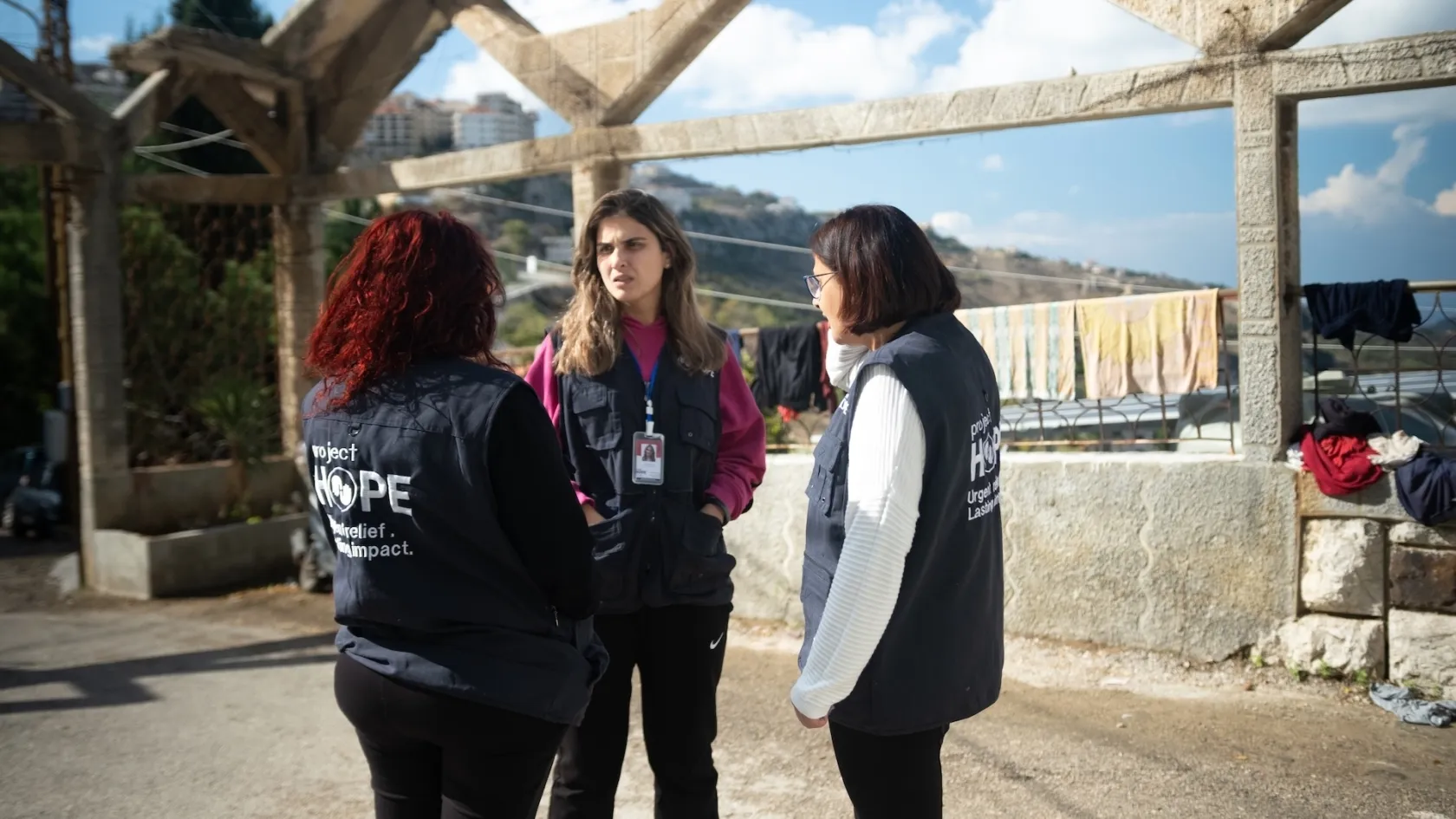Helene Destruction in North Carolina: How to Help
Project HOPE provided urgent relief and initiated long-term health strengthening programs to assist communities in North Carolina. Learn more about our response.
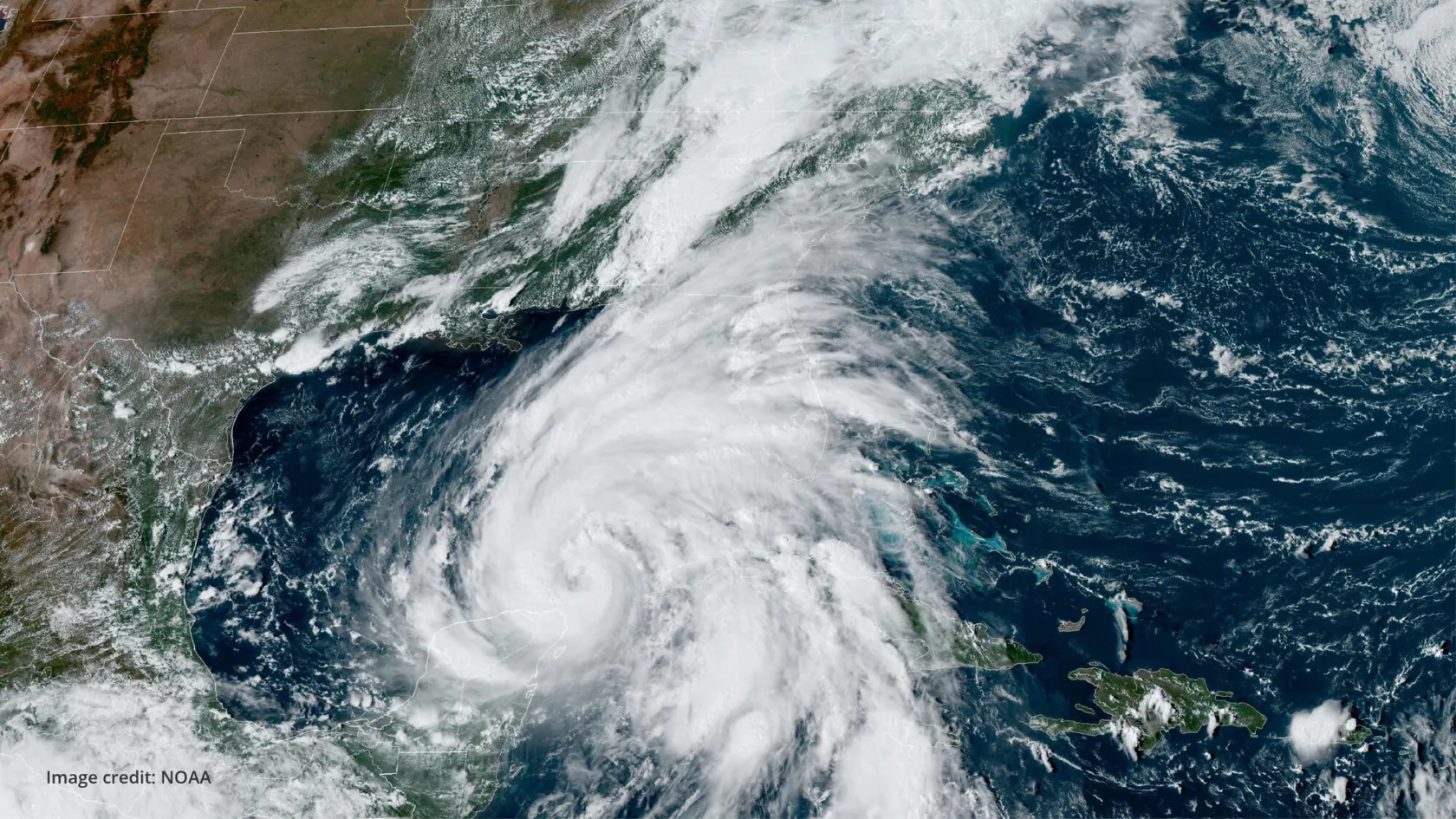
In October, severe flooding in the aftermath of Hurricane Helene caused widespread damage across North Carolina, cutting off entire communities and leading to dangerous shortages of food, water, gas, and power.
Project HOPE distributed essential supplies to health facilities and shelters in the immediate aftermath of the storm and initiated long-term health strengthening programs to assist communities as they recovered. Read on to learn more about our response.
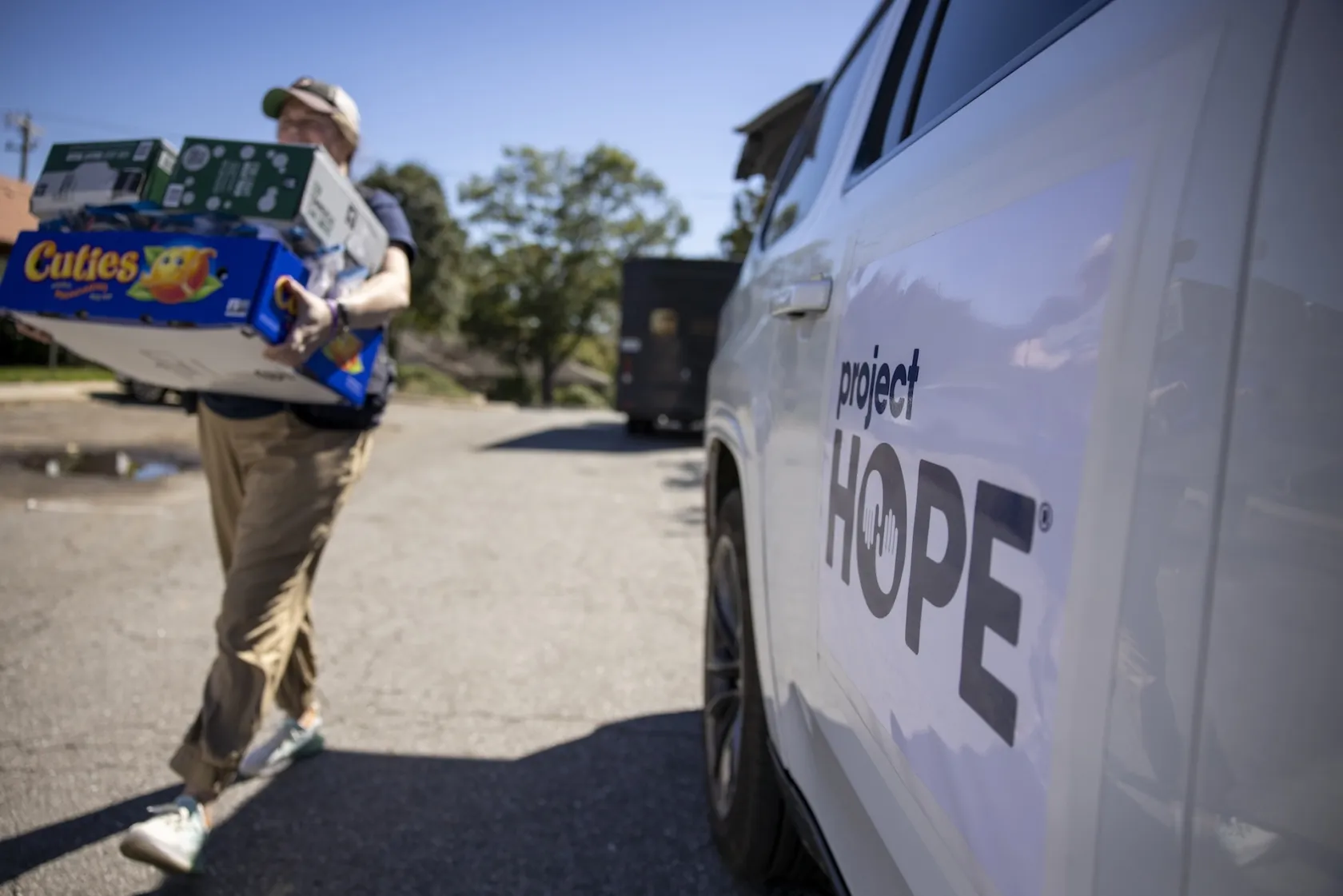
What damage did Hurricane Helene cause in North Carolina?
In just three days, communities in North Carolina received five months of rainfall—enough to wash out roads and create deadly landslides, long-term power outages, and dangerous water shortages. Governor Roy Cooper called it “one of the worst storms in modern history,” and the recovery will be long.
Access to care in rural, mountainous communities was limited even before the storm, and restoring access to these communities was made more difficult due to access issues and lack of communications infrastructure immediately following the storm. Trauma, stress, and anxiety increased the need for psychosocial support in communities that were already over-burdened with mental health crises and substance abuse.
Early requests indicated a need for diabetes supplies, including test strips, oral medication, and insulin — including cold storage support, given that many facilities and communities experienced power outages that disrupted cold chain storage. Local officials also publicly requested water, sanitation, and hygiene (WASH) supplies, including significant quantities of potable water.
As communities moved into the recovery phase, health facilities saw a spike in demand for services as they transitioned from urgent needs back to more routine health care, and Project HOPE’s free and charitable clinic partners assisted in addressing the backlog of patient needs.
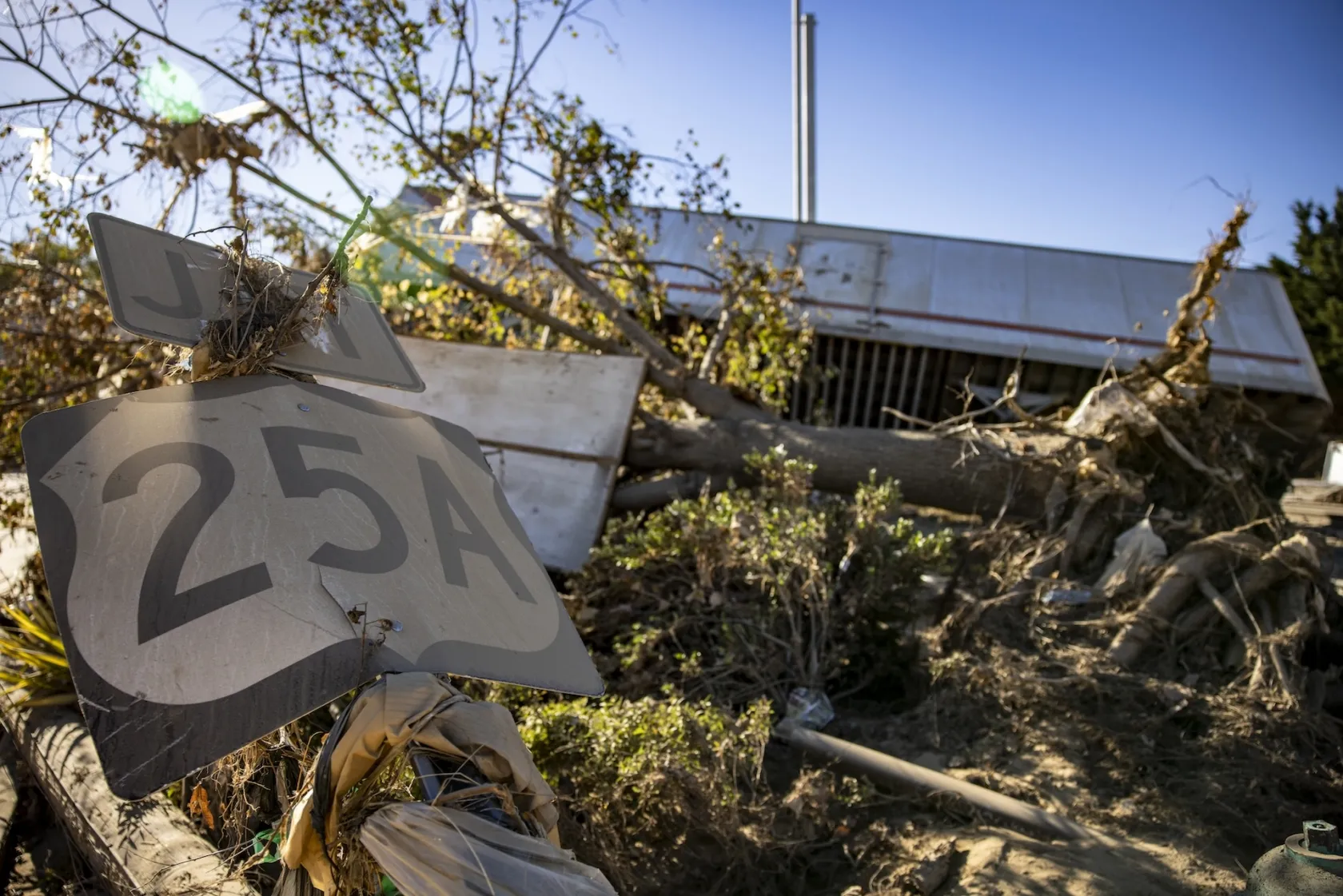
How is Project HOPE responding?
In the first weeks after the storm, Project HOPE’s response team in western North Carolina deployed to distribute essential supplies to health facilities and shelters, including hygiene supplies, water, and over-the-counter medicines.
Project HOPE distributed WASH and health supplies including hygiene kits, first aid kits, intermediate bulk container (IBC) tanks, mobility equipment, and medicines to seven health facilities and shelters across Buncombe, Henderson, and Jackson counties. Project HOPE reached an estimated 4,500 individuals with access to water, sanitation, hygiene, and medical supplies.
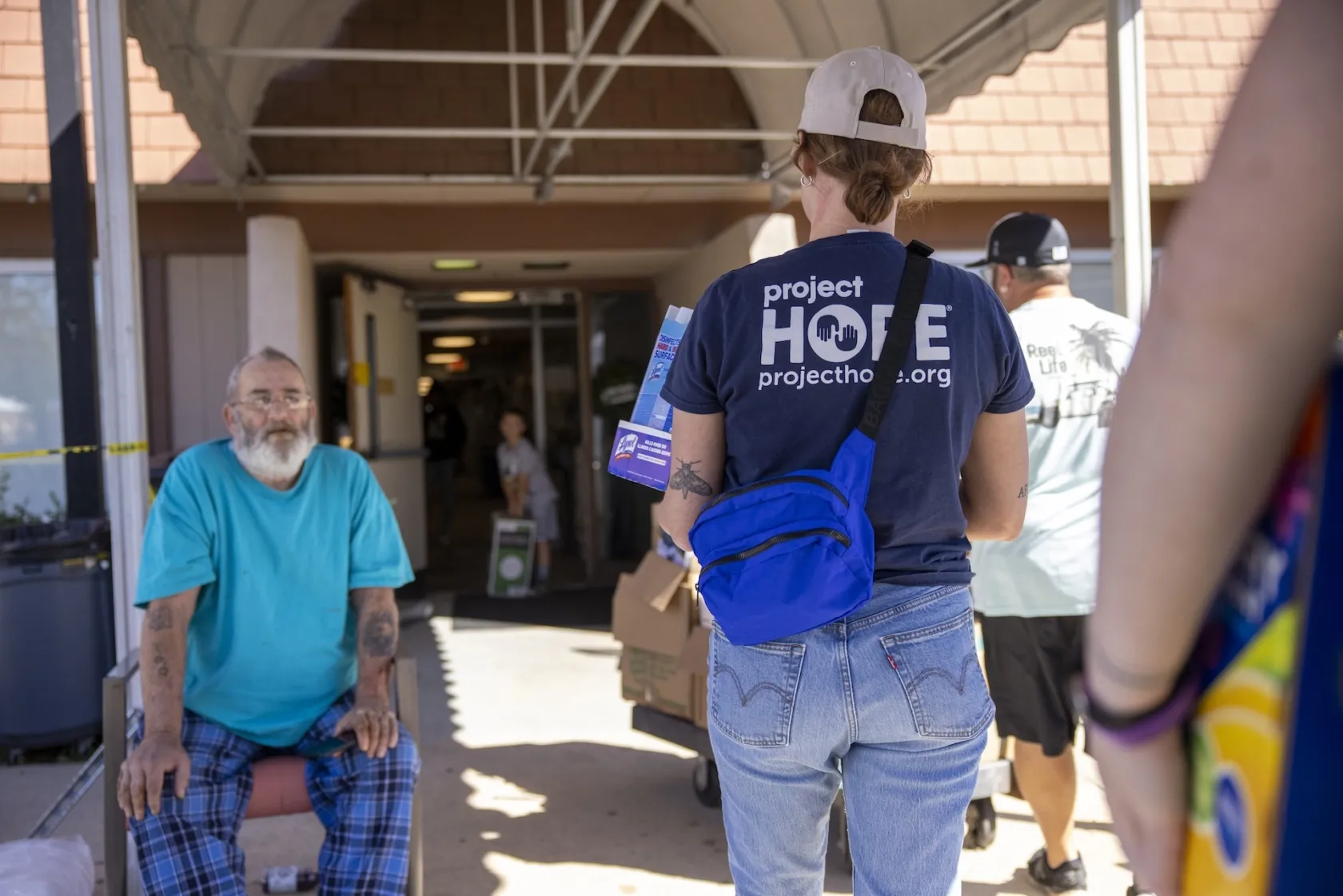
Project HOPE then initiated long-term health strengthening programs to assist communities in recovery. A medical volunteer (doctor) was assigned to Good Samaritan Clinic in Burke County into December to ensure that underserved communities continued to have access to qualified health workers during the recovery phase. Project HOPE also supported the operating expenses of Good Samaritan’s mobile medical unit (MMU) and distributed essential supplies to local partners.
Where did Hurricane Helene make landfall?
Hurricane Helene made landfall along Florida’s Big Bend region on September 26 as a Category 4 hurricane, causing severe storm surge along the Florida coastline. Helene continued north causing significant flooding in Georgia and southern Appalachia, especially in western North Carolina where some towns remain cut off from road access. Currently, 86,000 remain without power in North Carolina and more than 90 people have died, while an unknown number of people are still missing. The full death toll from Hurricane Helene is over 230.

What is Project HOPE’s history in the U.S.?
Project HOPE has a long history of emergency response in the United States. Project HOPE recently responded to Hurricane Ida in 2021, Hurricane Ian in 2022, and Hurricane Idalia in 2023 by providing surge staffing to health facilities, delivering urgently needed supplies to affected communities, and equipping health facilities with medicines and supplies.
Project HOPE previously partnered with free and charitable clinics across the southeast during the Covid-19 pandemic, helping dozens of clinics across Alabama, Florida, Georgia, Louisiana, and Texas provide more than 21,000 vaccines to communities in need. As frontline responders to underserved and under-resourced communities, charitable clinics are critical to improving health equity, especially during emergencies. Project HOPE is committed to supporting local responses and partnering with local organizations.

